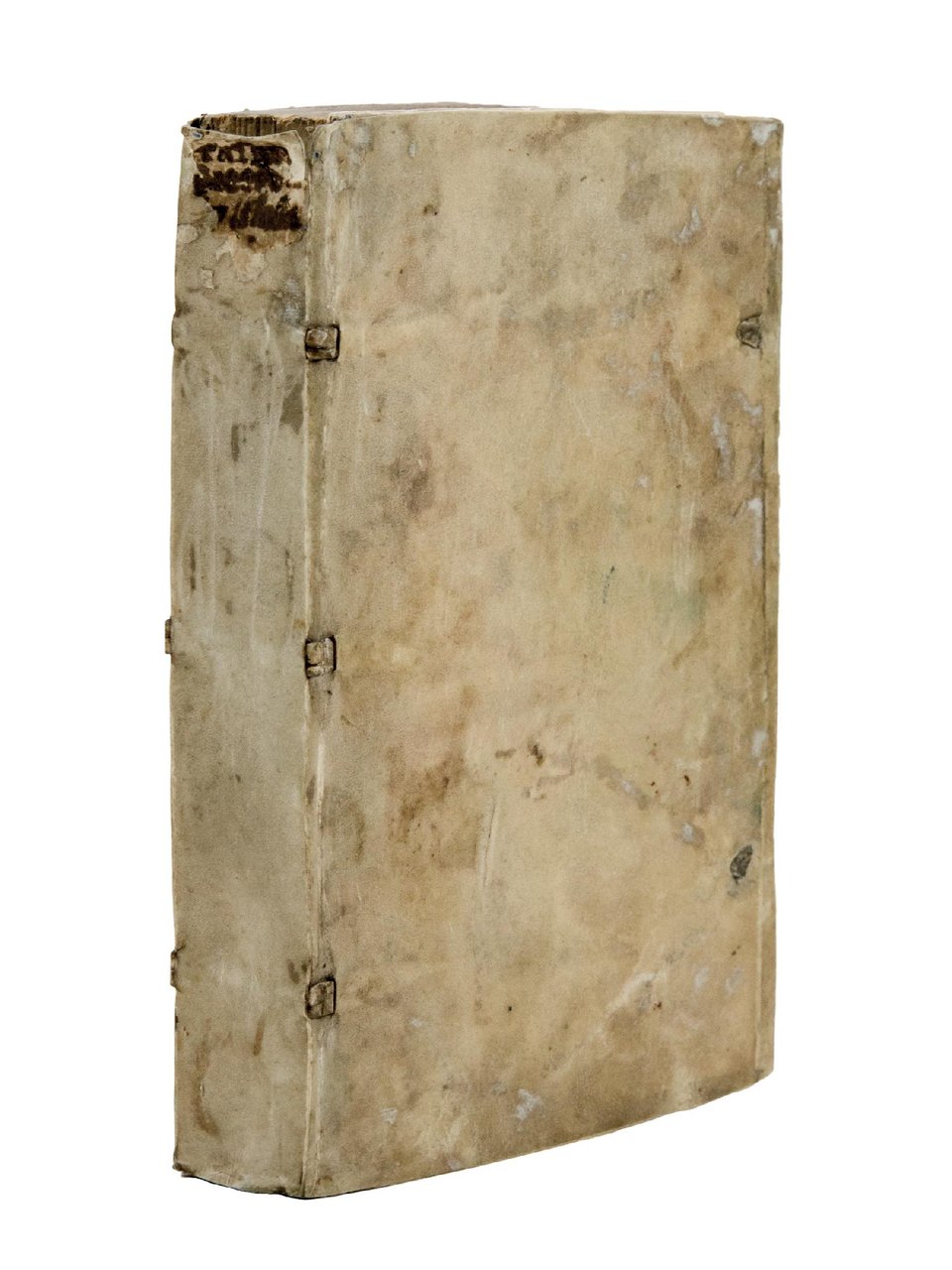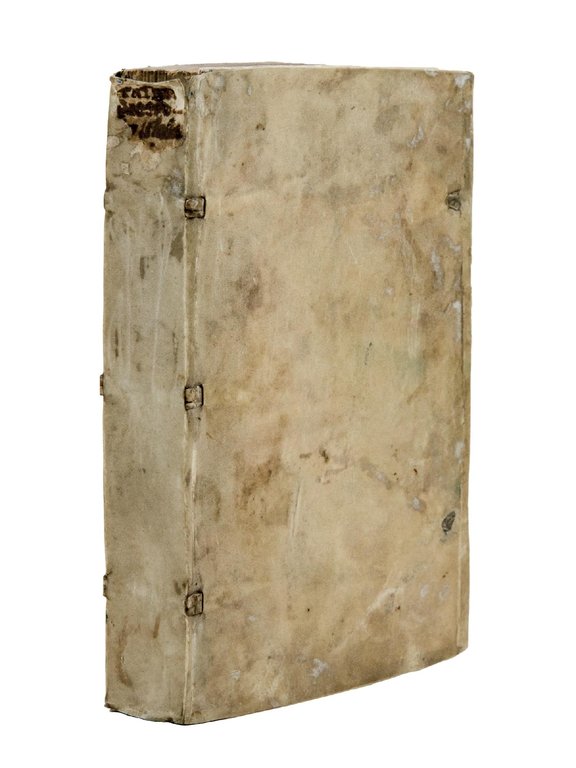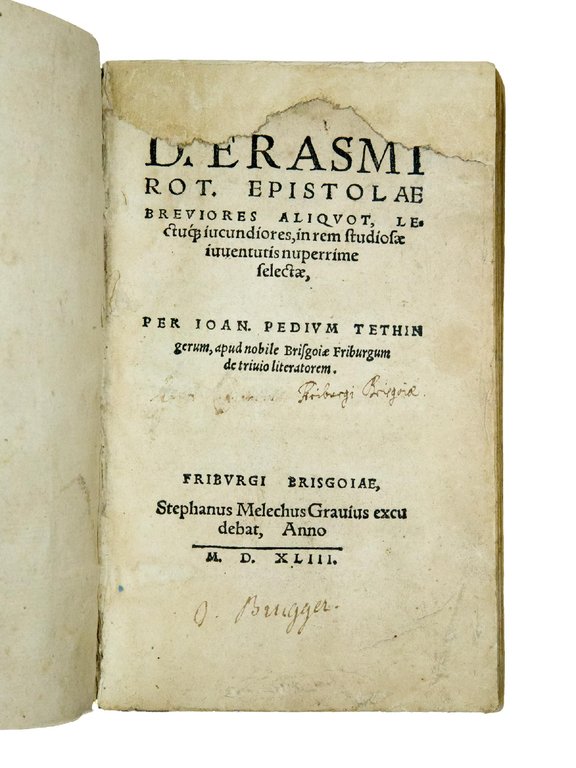Epistolae breviores aliquot, lectuq(u)e iucundores, in rem studiosae iuventutis nuperrime selectae, per Ioan. Pedium Tethingerum, apud nobile Brisgoie Friburgum de trivio literatorem
Epistolae breviores aliquot, lectuq(u)e iucundores, in rem studiosae iuventutis nuperrime selectae, per Ioan. Pedium Tethingerum, apud nobile Brisgoie Friburgum de trivio literatorem | Libri antichi e moderni | ERASMUS, Desiderius (1466-1536)
Epistolae breviores aliquot, lectuq(u)e iucundores, in rem studiosae iuventutis nuperrime selectae, per Ioan. Pedium Tethingerum, apud nobile Brisgoie Friburgum de trivio literatorem
Epistolae breviores aliquot, lectuq(u)e iucundores, in rem studiosae iuventutis nuperrime selectae, per Ioan. Pedium Tethingerum, apud nobile Brisgoie Friburgum de trivio literatorem | Libri antichi e moderni | ERASMUS, Desiderius (1466-1536)
Metodi di Pagamento
- PayPal
- Carta di Credito
- Bonifico Bancario
- Pubblica amministrazione
- Carta del Docente
Dettagli
- Anno di pubblicazione
- 1543
- Luogo di stampa
- Freiburg/Br.
- Autore
- ERASMUS, Desiderius (1466-1536)
- Editori
- Stephan Graf
- Soggetto
- Ars Epistolica
- Stato di conservazione
- Buono
- Lingue
- Italiano
- Legatura
- Rilegato
- Condizioni
- Usato
Descrizione
8vo. 167, (9, including one blank) leaves. a-y8. Contempory limp vellum.
Index Aureliensis, 163.213; VD 16, E-2959; I. Bezzel, Erasmusdrucke des 16 Jahrhunderts in Bayerischen Bibliotheken, (Stuttgart, 1979), 1045; H. Brunner, Dulce bellum inexpertis: Bilder des Krieges in der deutschen Literatur des 15. und 16. Jahrhunderts, (Wiesbaden, 2002), p. 485; F. van der Haegen, Bibliotheca Erasmiana, I, (Gand, 1893), p. 101.
ONLY EDITION of this selection of Erasmian letters published by the poet and historian Johannes Tethinger (fl. 1st half of the 16th century). It was intended for school boys as a manual of model letters. Probably Tethinger had in hands the similar volume published at Basel by Bartholomäus Westheimer in 1538.
Both volumes open with Erasmus' letter to the Carthusian Gabriel Ofhusius, dated Anderlecht, October 14, [1520]. Some letters are omitted in one of the works, whereas there are a few additions in the other. Both works also contain answers to letters written by Erasmus. Whereas Westheimer's edition does not contain letters dated after 1529, Tethinger's selection has letters up to 1533 and furthermore some poetry: Hermann von dem Busche's poem In Erasmum Coloniam recens ingressum (1516), Heinrich Glareanus' elegy Ad Erasmum Roterdamum immortale Belgarum decus (1516), and by the same an elegy celebrating his friend Oswald Mykonius (1516).
Very little is known about the life of Johann Tethinger. He probably took over the position as a rector of the grammar school in Freiburg a.Br. around 1518. He published some schoolbooks on Latin grammar, but his main work is Silva de quattuor bellis Wirtembergicis (1535), an epic on the wars of Ulrich, Duke of Wurttemberg. An enlarged edition with an added historical prose account was published in 1545 (cf. P.P. Albert, Zur Lebens- und Familiengeschichte des Dichters und Geschichtsschreibers Johann Tethinger Pedius, in: “Zeitschrift für die Geschichte des Oberrheins”, 54, 1900, pp. 8-14).
Gerrit Gerritszoon (better known as Desiderius Erasmus) was born at Rotterdam, apparently on October 28, 1466, the illegitimate son of a physician's daughter and a future monk. At Deventer he attended the local school run by the German humanist Alexander Hegius, learning Latin and Greek. On his parents' death he entered the Augustinian College of Stein near Gouda, where he spent six years. At length the Bishop of Cambrai, Henry of Bergen, made him his private secretary. In order to allow him to accept that post, he was given a temporary dispensation from his monastic vows, dispensation that later was made permanent by Pope Leo X.
After taking priest's orders Erasmus went to Paris, where he studied at the Collège Montaigu. He resided there until 1498, gaining a livelihood by teaching. Among his pupils was Lord Mountjoy, on whose invitation probably Erasmus made his first visit to England in 1498. He lived chiefly at Oxford, making the acquaintance of John Colet and Thomas More.
In 1500 he was again in France, living for the next six years mainly at Paris. During this period he wrote the Adagia (Paris, 1500) and the Enchiridion Militis Christiani (Antwerp, 1503). After a short visit to England, in 1506 Erasmus carried out a long-desired journey to Italy, staying chiefly at Padua as tutor to Alexander Stewart, Archbishop of St. Andrews, and Venice, collaborating to the publishing house of Aldo Manuzio. His visit closed with a short stay in Rome.
In 1509 the accession of Henry VIII and the invitation of Lord Mountjoy induced Erasmus once more to settle in England. In this period he wrote the famous Encomium Moriae (first published at Strasbourg or Paris in 1511) and resided mainly at Cambridge, where he was appointed Margaret professor of Divinity and professor of Greek.
After 1514 he lived alternatively in Basel and England, and from 1517 to 1521 at Louvain. In 1516 at Basel appeared the first edition of the Colloquia, usually regarded as his masterpiece, and the first edition of hi




